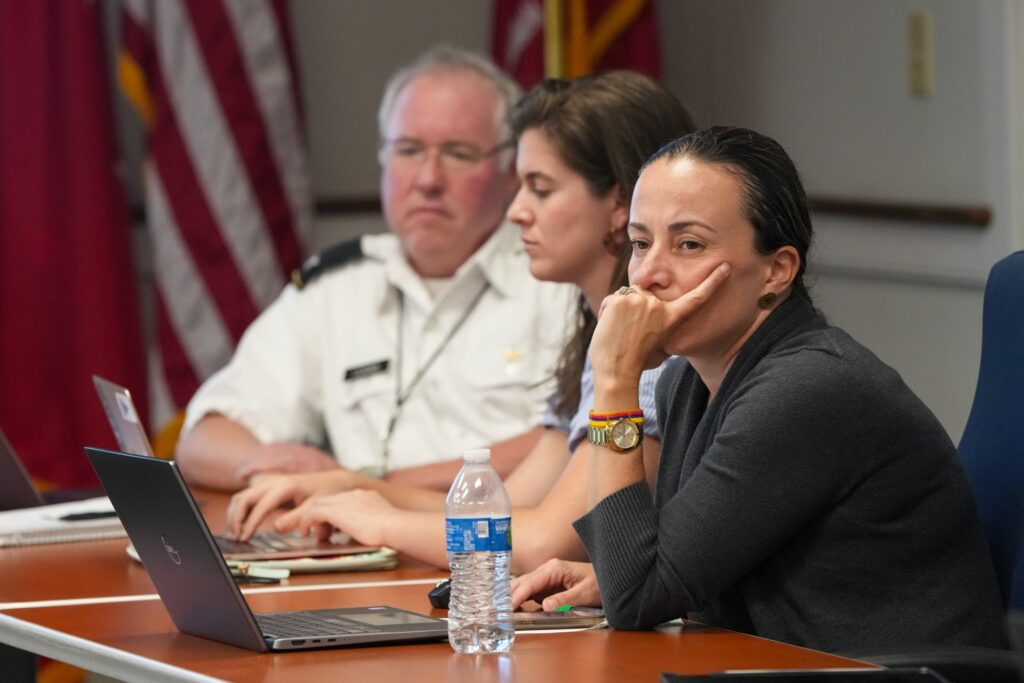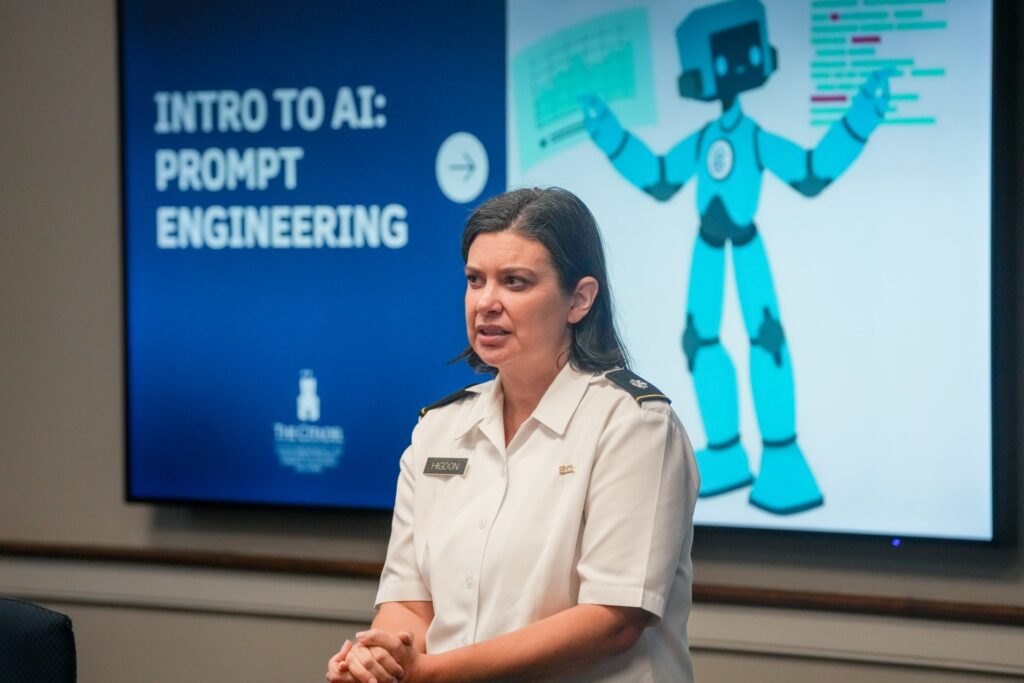Embracing AI in Education at The Citadel
In recent months, the rapid advancement of artificial intelligence (AI) has sparked both excitement and questions across the education sector. At The Citadel, the instructional design team at the Center for Excellence and Innovation in Teaching, Learning, and Distance Education (CEITL&DE) is at the forefront of exploring how AI can enhance teaching and learning. In a recent workshop that was part of an ongoing series on AI, Assistant Provost for Teaching and Learning Jessica Higdon, Ed.D., and Andrew Zutell, Ph.D., who serves as an instructional designer, expertly guided faculty and staff through the basics of AI and its impact on higher education.
Higdon and Zutell helped demystify AI by explaining what it is—and, importantly, what it is not. Through hands-on demonstrations with tools like ChatGPT, Khanmigo and MagicSchool, they showcased practical applications for faculty and students alike. They also addressed an important question: How can we balance the benefits of AI with potential risks, like the temptation for students to engage in academic dishonesty? The team walked participants through strategies to mitigate these risks, emphasizing the importance of academic integrity and responsible AI use.
“To prepare students for an AI-driven future, educators should actively engage with generative AI,” said Higdon. “While classroom integration may not be the goal, understanding AI’s potential and limitations is crucial. This knowledge empowers educators to adapt teaching methods, assess student work effectively, and equip students with the skills needed.”
The workshop also sparked exciting discussions around AI’s positive applications on campus. For example, Mark Rosenbaum, Ph.D., a professor of marketing, is using AI tools with his upper-level students to streamline workflows, boost productivity and foster essential AI literacy skills that will serve graduates well in their careers. Rosenbaum, who has been teaching since 1999, has updated lectures based on CEITL classes, developing new course materials to teach students in his market research and business analytics class how to create questionnaires, analyze secondary research and analyze in-depth consumers interviews with AI. “Assignments that took weeks,” said Rosenbaum, “are now completed in seconds. We analyze data in ways that were impossible prior to AI. Students are engaged, and they interact with AI.”
Rosenbaum has also used AI to analyze his course syllabus and fine-tune his lesson plans. “This is pioneering for me and the cadets,” said Rosenbaum. “In fact, I often tell them, I’m not exactly sure that this is going to work; however, we aren’t moving backwards.”
In September, Zutell and Associate Professor for Literacy Education Britnie Kane, Ph.D., from the Zucker Family School of Education, represented The Citadel at the World AI in Education conference in Tokyo, Japan. They presented on the innovative ways AI is being incorporated into teacher education here, reflecting our commitment to preparing our students—and future educators—to thrive in an AI-enhanced world.
“It’s an exciting time to be an educator. Teachers, understandably, have some serious questions and concerns around students using AI, and those issues need to be addressed. At the same time, there is tremendous potential when it comes to positive use cases for these tools—for students, teachers, and administrators alike. I applaud Drs. Higdon, Kane, Rosenbaum, and others who are leading by example, educating themselves on various AI tools to better serve our students and our school community.”
Thanks to CEITL&DE, The Citadel remains a leader in harnessing AI’s potential to enrich the educational experience, with a thoughtful, balanced approach that leverages technology in ways that empower both students and faculty.
The first draft of this news article was created by ChatGPT.



